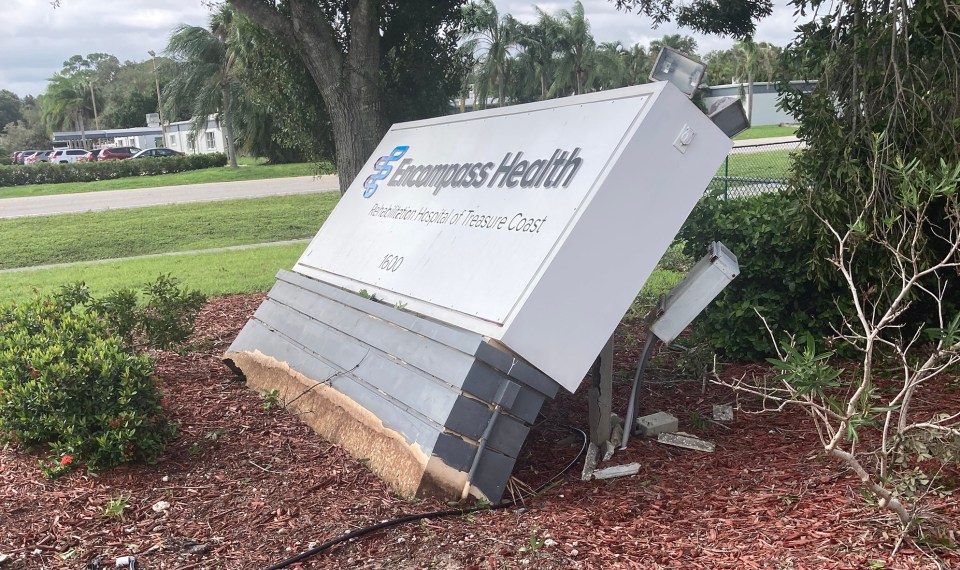According to the latest U.S. Census data, approximately 20% of the U.S. population lives in a rural area, accounting for one-quarter of all Medicare beneficiaries. Many health barriers exist for residents in rural America, particularly when it comes to the variety and quality of healthcare options within their reach.
This gap in healthcare services is particularly harmful for individuals who’ve experienced a stroke, traumatic brain injury, spinal cord injury or other condition requiring rehabilitation. A 2020 National Institute of Health study suggests that rural residents are up to 25% less likely to receive care at an inpatient rehabilitation facility (IRF) such as Encompass Health.
Barriers in Rural Health
On average, rural residents are older and have worse health outcomes than urban residents. One cause is social determinants of health (SDoH), those non-clinical factors such as income, education, housing, employment and social support that can affect the likelihood of developing a chronic disease and successfully managing it. Rural populations are known to face issues such as poverty, food insecurity and isolation at higher rates.
Rural counties also have fewer healthcare workers, disease specialists, emergency facilities and transportation services. This produces a significant burden for patients in terms of travel, cost and lost income due to time away from the workplace when seeking care. Unsurprisingly, members of rural communities are less likely to undergo preventive services that could deter future medical issues.
Elderly residents who seek in-home care are also at a disadvantage; the shortage of healthcare workers extends to home health workers, who must travel great distances between residences. Unfortunately, many patients don’t know that inpatient rehabilitation may be a more appropriate level of care for their needs.
Spreading Awareness of IRF Services
Encompass Health operates more than 160 hospitals nationwide, including many locations in rural or rural-adjacent markets. The challenge is to ensure these residents can make informed healthcare decisions, which includes helping them understand how inpatient therapy can help restore their independence after a life-changing illness or injury.
Debra Taylor, vice president of business development for Encompass Health’s South Central region, said it starts with engaging physicians and other referral sources at acute-care hospitals and clinics in the local market.
“We have a team of rehab liaisons in each hospital who are charged with educating about our level of care,” Taylor said. “They make sure the referring hospitals understand the difference between us and a skilled nursing facility. More than 80% of our patients return home after their stay with us, instead of discharging to a nursing home. That’s a big deal. Patients and providers deserve to know about this option.”
Additionally, many Encompass Health hospitals participate in local health fairs and host open-house events, which allow community members into the hospital to see our technology and therapy practices firsthand. They also partner with the American Heart Association/American Stroke Association to educate residents about their risk for heart attack and stroke and what rehabilitation options are available if they should experience either.
“Some hospitals also get involved in their local Chamber of Commerce, organize support groups for community members who have chronic conditions, invite former patients to speak at hospital events—you name it—anything to help people understand the value of inpatient rehabilitation,” Taylor said.
Prepping Patients for a Successful Discharge
When a patient in a rural community completes rehabilitation at Encompass Health, there’s a lot riding on their success. Hospital readmissions are even more costly in rural areas due to the barrier of long-distance travel required for patients and their caregivers, plus a potential waiting list for a hospital bed if there is a provider shortage.
Encompass Health’s discharge program was designed to decrease the likelihood of a patient being readmitted. Several important things happen in the three days prior to a patient leaving an Encompass Health hospital, including the following:
- Patients are asked to perform certain functions to determine the amount of progress made since admission and identify areas that can still improve.
- Case managers confirm the medical equipment and supplies a patient will need at home and may arrange for it to be delivered in advance.
- A pharmacist or nurse counsels the patient on medication management, often pre-arranging for prescriptions to be sent home with the patient or called ahead to their preferred pharmacy.
- Therapists give the patient printed instructions for a custom home exercise program and have the patient demonstrate the steps. They may also fit the patient for any therapy devices needed for their home routine.
- When needed, case managers arrange for someone to come to the patient’s home on the day of discharge to perform home audits and safety modifications.
- Encompass Health also developed a readmission prevention program that uses predictive analytics and a SDoH assessment. If the patient is identified as high-risk, the case manager will engage their primary care physician and connect the patient with community resources to assist with nutrition, support groups, transportation and more.
- As part of the SDoH assessment, a case manager will ask the patient if they live an hour or more from an urgent care center, emergency room or their physician. If they do, it elevates the patient’s risk of readmission. The case manager helps the patient and family develop a discharge plan that helps close that care gap.
Expanding to Serve More Communities
Understanding the healthcare gaps across the nation, Encompass Health continues to expand its national footprint of rehabilitation hospitals. This growth brings career opportunities to new locations and helps more patients in need.
Encompass Health Locations
Encompass Health has more than 160 hospitals in 37 states and Puerto Rico. Find a rehabilitation hospital near you.
Find a LocationThe content of this site is for informational purposes only and should not be taken as professional medical advice. Always seek the advice of your physician or other qualified healthcare provider with any questions you may have regarding any medical conditions or treatments.



